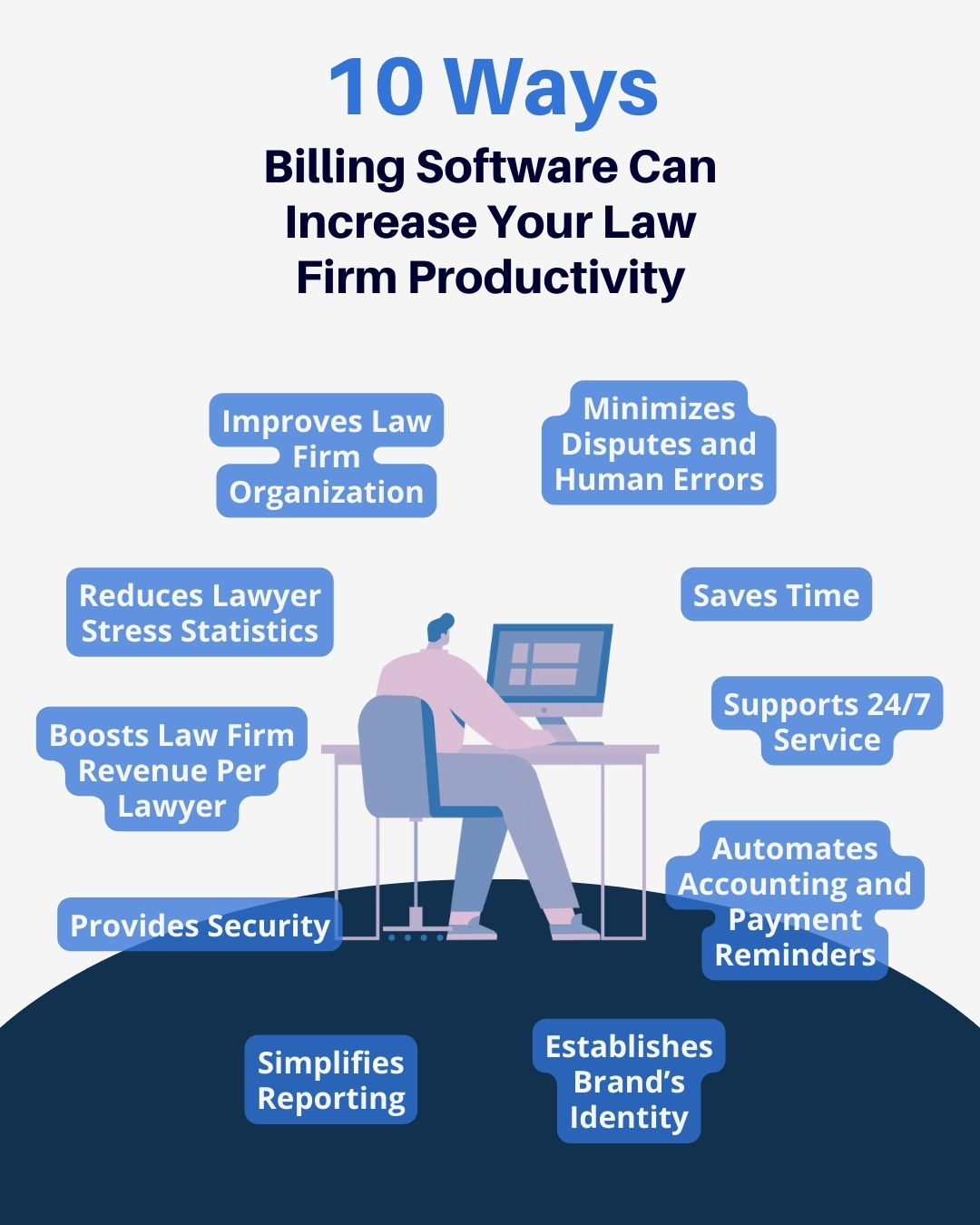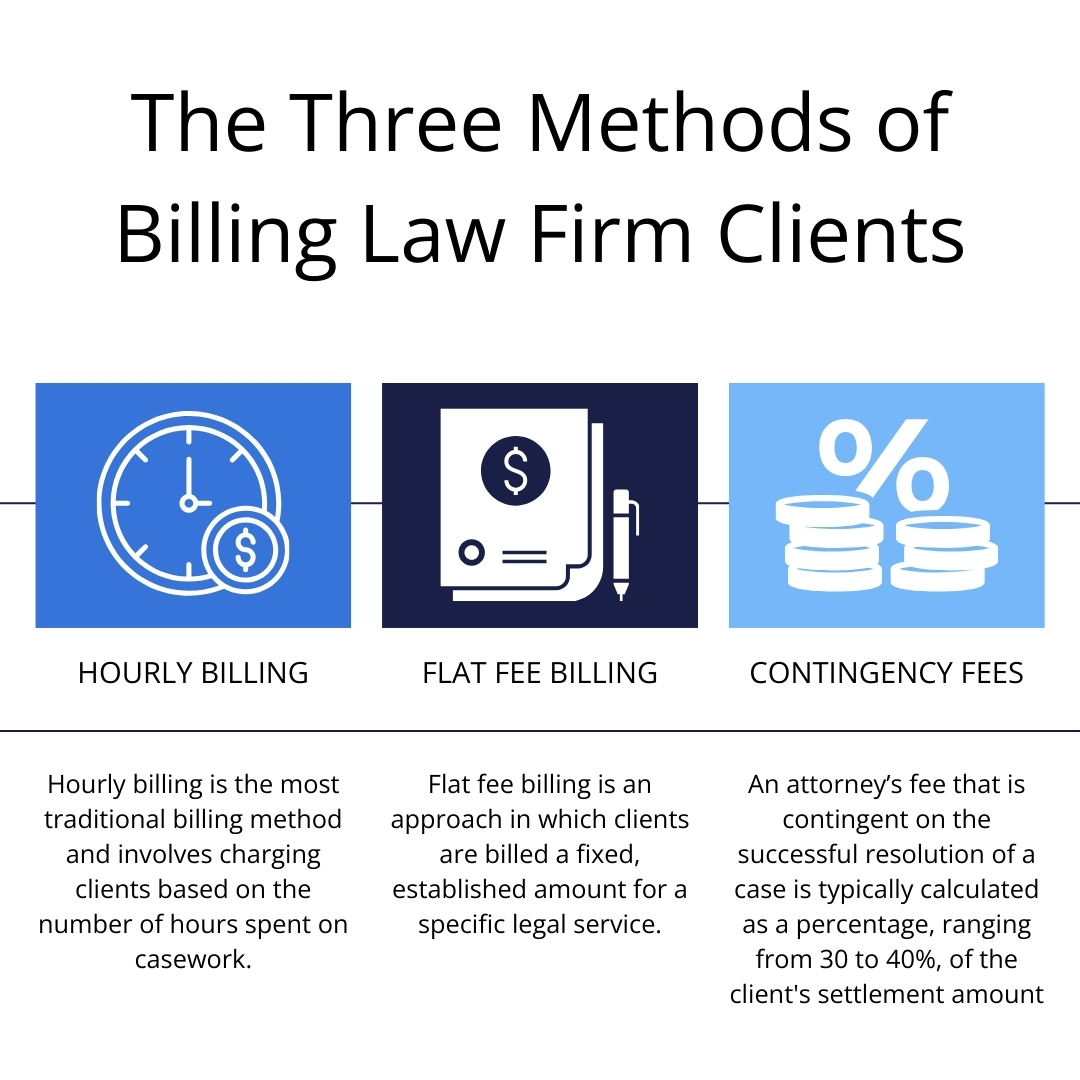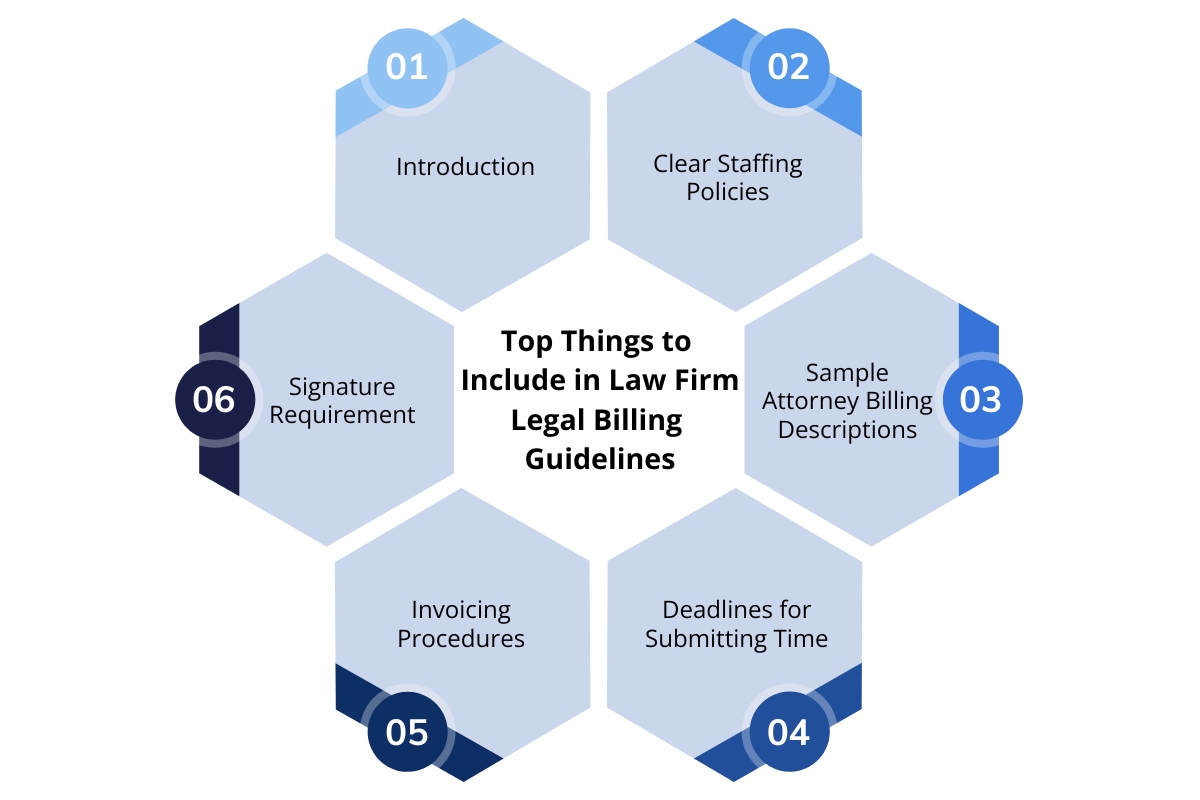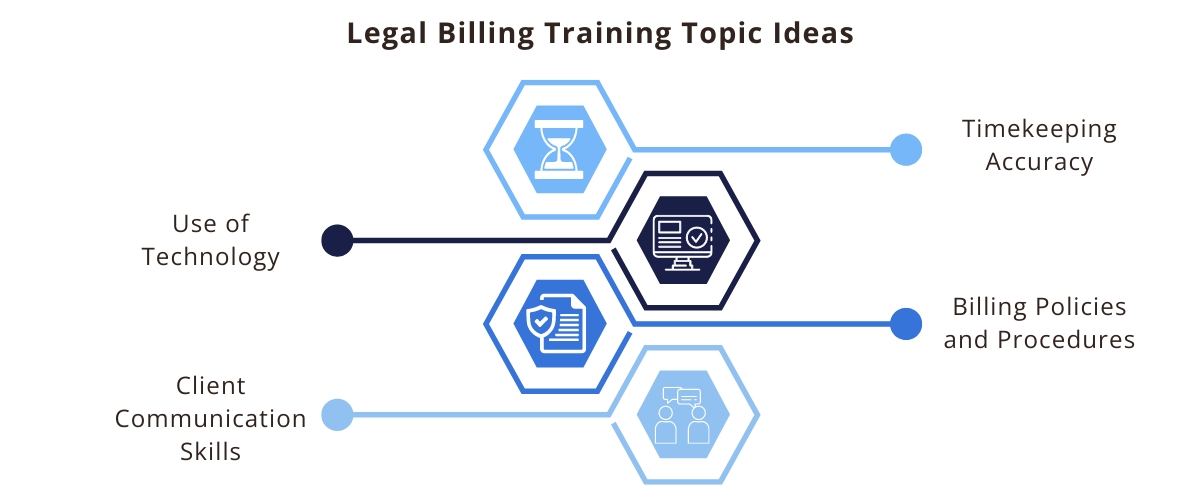Most law firms make money by the billable hour. The target minimum ranges between 1,700 and 2,300, but some firms quote higher numbers. However, lawyers simultaneously face the challenge of balancing billable work with non-billable tasks. They must bill sufficiently to cover the firm’s salaries and overhead expenses while ensuring profitability.
As a lawyer, you want to track time effectively and accurately while wasting as little time on the process of tracking itself. Attorney billable hours charts are a common way to speed up this process. Keep reading to learn more about how to use a billable hours chart, best practices for time tracking for lawyers, and how to use software to make time tracking much more manageable.
How to Convert Hours to Billable Hours with Charts
Lawyers usually round the time spent on a task to the nearest standard billing increment to convert them to billable hours. Standard increments across a law firm ensure client transparency, protect revenue, and provide more convenience than tracking each individual minute.
Here’s a breakdown of the common billing increments:
Billing in 6-Minute Increments Chart
Billing in 6-minute increments is a standard practice for several reasons. Billing by the minute is difficult and time-consuming, while larger increments could lead to vague billing and excessive padding that don’t serve the client.
6-minute increments easily convert into units (10 per hour) and can account for shorter tasks. For example, a 5-minute phone call can be rounded up and billed for 6 minutes rather than billing for each individual minute.
Check out this 6-minute increments chart for reference to see how this works:
Tracing the history of the billable hour and six-minute increments unveils a fascinating evolution in legal billing practices. In the past, legal fees were under state law control and considered various income supplements for lawyers, like retainers and client bonuses. By the early 20th century, billing methods varied, encompassing fixed fees for tasks, retainers, and even contingency fees, recognized by the ABA in 1908.
The 1930s and 1940s saw a shift as state bar associations, aiming to boost attorney incomes, introduced “suggested” minimum fee schedules for common legal services. Although they labeled these fees as voluntary, there were consequences for undercutting them, potentially leading to disciplinary actions.
The Supreme Court Goldfarb v. Virginia State decision in 1975 ruled that minimum fee schedules violated antitrust law, which made the billable hour method the primary standard for the industry. The practice of correlating a lawyer’s hours with service value, a concept recognized well before this shift, lent support to this change. There’s evidence that attorneys were using the billable hour in 6-minute increments as far back as 1913 with attorney Reginald Heber Smith of The Boston Legal Aid Society. Reginald used innovative timesheets and meticulously recorded time in six-minute increments.
Billing in 10-Minute Increments Chart
If 6-minute increments are too short, a 10-minute increment can offer a balance between increments that are too large and cumbersome minute-by-minute time tracking. However, this method is not as easy to use as 6-minute increments, as dividing an hour into tenths is much cleaner than dividing an hour into sixths.
For example, if a lawyer spends 8 minutes reviewing a court order and they are billing in 10-minute increments, they would round up to 10 minutes, or .17 in billable time. 20 minutes would be .33, 30 minutes would be .5, 40 minutes would be .67, and 50 would be .83.
As you can see, these decimals are a bit messier when compared to their 6-minute increment counterparts above, which could make calculations difficult and bills harder to read for clients.
Billing in 15-Minute Increments Chart
15-minute increments, or a quarter of an hour, are less common than 6-minute increments but a bit easier to calculate than 10-minute increments. A task that takes 15 minutes is billed at .25 hours, 30 minutes is .5 hours, and 45 minutes is .75 hours.
However, clients and fellow lawyers tend to have negative views of larger increments because they suggest that the attorney is drastically rounding their time up and overcharging — especially when many tasks take less than 15 minutes.
For example, it’s common for client phone calls or email responses to take just a few minutes each time. You can either round up to 15 minutes, which would be overcharging, or you can group multiple calls or emails into one 15-minute increment, which is a frowned upon practice called “block billing.” Block billing involves grouping multiple tasks into a single time entry, which can obscure the time spent on each task and make it difficult to assess the value of work done.
Overall, it’s best to use 6-minute increments, as they are small enough to bill accurately for time and easy to calculate.
How Do You Calculate Legal Billable Hours?
If you want to use a billable hours chart to convert your time manually, here’s how:
1. Note the Start Time
Record the time that you started the task. For example, if you’re tracking time spent on a client call, make a note of the time when you dial the phone number.
2. Note the Stop Time
Make a note of the time you stop the task. Using the previous example, write down when your phone call ends. This step can be challenging with tasks involving multiple interruptions, such as case research or reviewing documents. You have to be diligent in tracking the start and stop times. Time tracking software can help with automated start-stop timers and multiple timers for different tasks.
3. Calculate Total Duration
Using the start and stop time, calculate the total duration of the task. For example, your phone call with the client may have been 11 minutes.
4. Convert to the Nearest Billing Increment
Convert the total duration to the nearest increment. For an 11-minute phone call and 6-minute billing increments, you round up to 12 minutes or .2 billable hours. It’s common practice at law firms to round up in most cases.
5. Review and Adjust If Needed
No matter how diligent you are about your time tracking, you should complete a thorough review of billables every week to ensure you haven’t forgotten anything. For example, it’s possible that you didn’t stop or start a timer when you were reviewing a document and got interrupted, so you would need to backtrack and determine the correct time you spent on that task.
It’s best to review weekly or even daily while events are still fresh in your mind. Otherwise, it’s more difficult to estimate your time accurately.
6. Add Up All Hours and Invoice
At the end of a billing period, it’s time to prepare an invoice for your client. You will need to compile all your billable time and corresponding descriptions into an invoice and do a final review. Multiply the billable hours against your hourly rate for a sum total of what the client owes.
How to Track Billable Hours with Software
As you can likely tell from all the steps above, manually tracking billable hours is a tedious and error-prone task, even with a billable hours chart. Law firm time tracking and billing software like Bill4Time can streamline this process with features that automate each step. Think of it as your own automatic attorney billable hours calculator!
Let’s review the same process for recording time spent on a billable task with time tracking software instead of manual methods.
1. Create a New Timer Entry and Start the Timer
Create a new timer entry and start the timer on your laptop, phone, or tablet before you call your client. If interruptions occur, press “pause” to stop the timer until you resume.
2. Stop the Timer When Done
When you finish the call, stop the timer. The software will automatically calculate the exact duration of your call and round up to the nearest increment based on your firm’s increment settings.
3. Review and Adjust If Needed
If you need to adjust your automated time calculations, you can do so manually. For example, let’s say your client call lasted 13 minutes which rounded up to 18 minutes — or .3 billable hours. You can choose to round that time down to 12 minutes, or .2 billable hours, to address that extra minute if you would like.
4. Automatically Generate and Send an Invoice
Time tracking software streamlines every aspect of the timekeeping process, but you’ll notice the biggest difference when it comes time to invoice. Instead of manually calculating all your hours, converting them to billable increments, and recording them on an invoice, all the work is done for you. Your billable increments, with your description and rates, can be automatically generated on an invoice and sent to your client in just a few clicks!
Tracking hours accurately is important, but you have to do so efficiently to make sure you’re not losing money to non-billable time. With a time tracking software solution like Bill4Time, you can record your time conveniently and precisely to meet your targets, maximize your billable time, and ensure you’re doing the best for your clients. Try out Bill4Time with a free demo today to see the difference it can make!




